It’s Wednesday, April 1 – the first day since schools shut down in line with the government’s directives to address the Covid-19 pandemic.
More and more people are walking the streets with masks and gloves on and everyone has that look of edginess as they walk past each other, keeping space apart.
In some circles, the newly recorded cases of the Corona Virus are still being played out as a hoax – a desperate attempt employed by the government to attract foreign aid. The government just declared a 3-day lockdown starting Sunday 5th April 2020 and it is proving to be increasingly demanding on the average Sierra Leonean. In the local market, prices of commodities continue to rise as people flooded shopping centers and stalls to panic-buy.
NGOs are canceling projects as plans get reviewed and resources get channeled to alternative activities more in tune with the coronavirus response program.
Impact of the Covid-19 Pandemic on the Sierra Leone Landsrong>
In the last few weeks, following the announcement of the State of Public Health Emergency, there have been limitations on the number of people allowed to attend funerals, weddings and other social and cultural activities, and a ban on the holding of religious gatherings. The effect of this is that religious places of worship no longer congregate. Schools have been shut down until further notice. And social gatherings at pubs or beaches are no longer permissible.
The regulations restricting religious gatherings have led to churches scrambling to hold services online via Facebook Live.
The service sector which includes the tourism and hospitality industries, contributes about 30% to the country’s GDP and employs a significant portion of young people. The new regulations are already threatening these jobs and forcing businesses in this sector to shut down.
The entertainment and events sector is also feeling the heat with several major shows and events getting canceled.
Ultimately, it fair to anticipate a huge shrink in the SME space as more and more small businesses will shut down.
Airports and Land Borders are closed except for emergency and essential supplies.
The retail industry that import most commodities from China has begun experiencing shortages of vital commodities in the market.
The current situation is pretty much similar to what prevailed in the Ebola outbreak. However, unlike the Ebola epidemic, we saw this coming and had some foreknowledge that should have prepared us for the coming crises.
There is high compliance with public health measures introduced, primarily regular washing of hands. There are hand washing stations in all offices. But there are major issues with social distancing. Sierra Leone lacks mass transit services for commuters. The recent directives restricting the number of passengers allowed in public transport has doubled or tripled the queues of passengers along the streets. People would rather be crammed into the few public transports available than wait endlessly to get to their place work.
Awareness of the virus is high, but the economic conditions of the average Sierra Leonean limit the options they have to comply with social distancing guidelines.
Financial Sector and Donor Community Response
The Government has launched its Quick Action Emergency Response Program (QAERP) estimating the potential costs to the economy at both the macro and micro levels based on three scenarios, the severity of which will also depend on what is happening in the wider world.
Scenario 1 – Several positive cases and fatalities in trading partners and donor countries but zero positive cases in Sierra Leone. Social distancing being implemented but no national ‘lockdown’.
Scenario 2 – Positive cases in Sierra Leone resulting in short term nationwide movement restrictions. The government is still in control of the outbreak and the economy remains functional.
Scenario 3ng> – Health system becomes overwhelmed and more significant ‘lockdown’ measures introduced for a longer period
The government has revised its 2020 Economic Growth forecasts from 4.2% to 3.8% in the best-case scanario; and into negative territory in the worst-case scenario.
Domestic Revenue initially forecasted at US$ 640m is now projected to drop by 9% in the best-case scenario and 19% in the worst-case scenario.
The Government needs US$166.5m to finance the QAERP and already has a funding gap of US$96.4m
Specifically, the objectives of the Programme are to:
- Build and maintain an adequate stock level of essential commodities at stable prices.
- Provide support to hardest-hit businesses to enable them to continue operations and avert lay-offs of employees.
- Provide safety nets to vulnerable groups.
- Support labor-based public works.
>Provide assistance for the local production and processing of staple food items.
,





